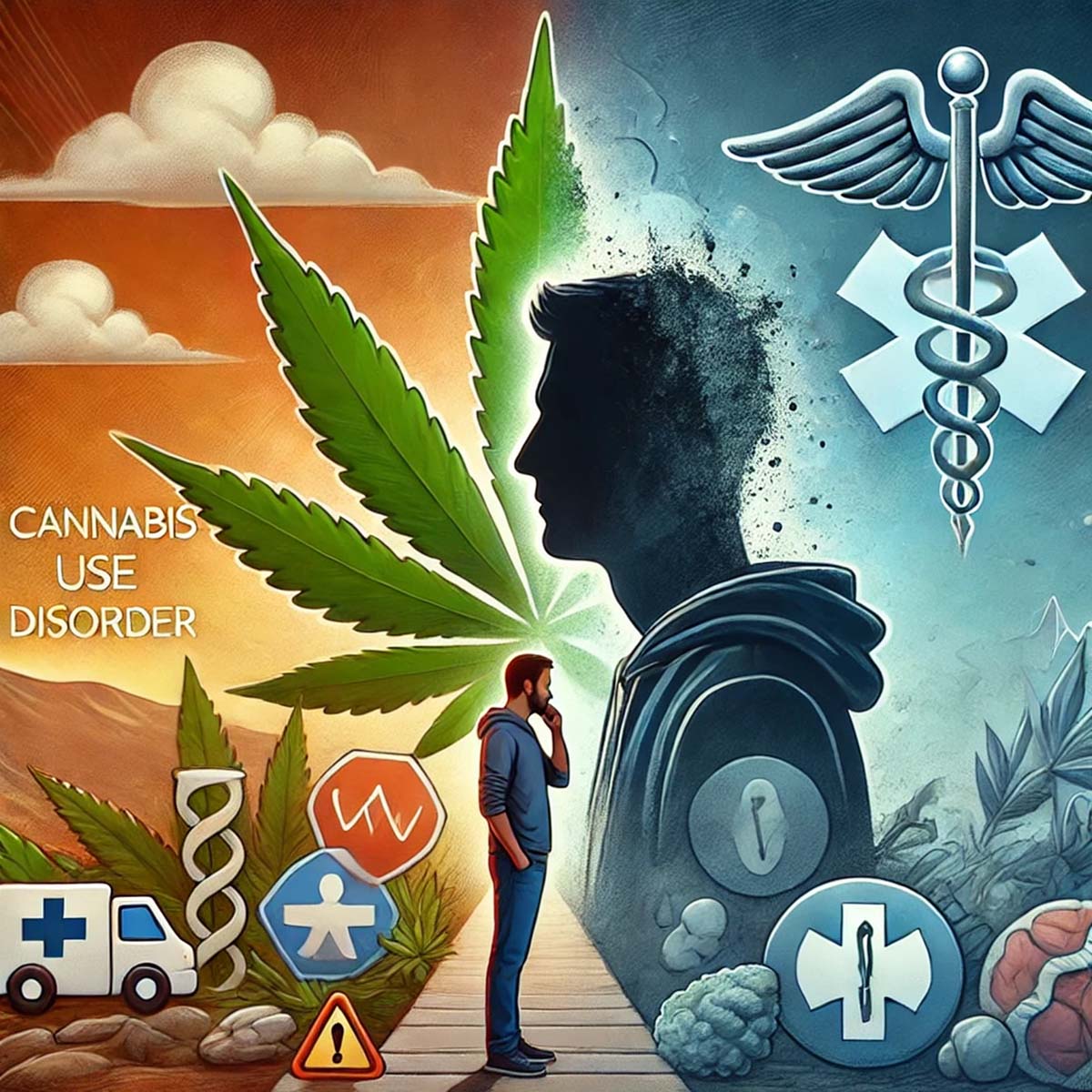Cannabis use disorder (CUD) is a condition characterized by the problematic use of cannabis that leads to significant impairment or distress. With the increasing legalization and normalization of cannabis use, it’s essential to understand the potential risks associated with cannabis use disorder and the available management strategies. This blog will provide an overview of CUD, its symptoms, risk factors, and treatment options.
What is Cannabis Use Disorder?
Definition:
- Cannabis use disorder is a diagnosis defined in the Diagnostic and Statistical Manual of Mental Disorders (DSM-5) that describes a pattern of cannabis use leading to significant impairment or distress.
Symptoms:
- The DSM-5 outlines 11 criteria for CUD, including:
- Using cannabis in larger amounts or over a longer period than intended.
- Persistent desire or unsuccessful efforts to cut down or control use.
- Spending a lot of time obtaining, using, or recovering from cannabis.
- Cravings or a strong desire to use cannabis.
- Recurrent use resulting in failure to fulfill major role obligations at work, school, or home.
- Continued use despite having persistent or recurrent social or interpersonal problems caused or exacerbated by cannabis use.
- Giving up or reducing important social, occupational, or recreational activities because of cannabis use.
- Using cannabis in situations where it is physically hazardous.
- Continued use despite knowledge of having a persistent or recurrent physical or psychological problem likely to have been caused or exacerbated by cannabis.
- Developing tolerance, requiring more cannabis to achieve the desired effect.
- Experiencing withdrawal symptoms when not using cannabis.
Severity:
- The severity of CUD is classified based on the number of criteria met:
- Mild: 2-3 criteria
- Moderate: 4-5 criteria
- Severe: 6 or more criteria
Risk Factors for Cannabis Use Disorder
1. Age of Onset:
- Starting cannabis use at a younger age increases the risk of developing CUD.
2. Frequency of Use:
- Frequent and heavy use of cannabis is associated with a higher risk of developing CUD.
3. Genetic Factors:
- Genetics can play a role in an individual’s susceptibility to CUD, with a family history of substance use disorders being a significant risk factor.
4. Co-occurring Mental Health Conditions:
- Individuals with mental health disorders such as anxiety, depression, or ADHD are at a higher risk of developing CUD.
Consequences of Cannabis Use Disorder
1. Cognitive Impairment:
- Chronic cannabis use can lead to cognitive deficits, including memory problems, difficulty concentrating, and impaired decision-making.
2. Mental Health Issues:
- CUD can exacerbate existing mental health conditions and contribute to new ones, such as anxiety and depression.
3. Social and Occupational Impairment:
- CUD can negatively impact relationships, academic performance, and work productivity.
4. Physical Health Problems:
- Long-term cannabis use can lead to respiratory issues, cardiovascular problems, and other health concerns.
Treatment and Management of Cannabis Use Disorder
1. Behavioral Therapies:
- Cognitive-behavioral therapy (CBT) and motivational enhancement therapy (MET) are effective in treating CUD by helping individuals change their patterns of thinking and behavior.
2. Medications:
- While there are no FDA-approved medications specifically for CUD, some medications can help manage symptoms and reduce cravings.
3. Support Groups:
- Joining support groups such as Marijuana Anonymous can provide peer support and shared experiences for individuals struggling with CUD.
4. Lifestyle Changes:
- Encouraging a healthy lifestyle, including regular exercise, proper nutrition, and stress management techniques, can support recovery from CUD.
5. Professional Help:
- Consulting with healthcare professionals who specialize in addiction treatment is crucial for developing a personalized treatment plan.
Takeaways
Cannabis use disorder is a significant concern that can impact various aspects of an individual’s life. Understanding the symptoms, risk factors, and treatment options is essential for addressing this condition effectively. If you or someone you know is struggling with cannabis use disorder, seeking professional help and support can lead to successful management and recovery.



